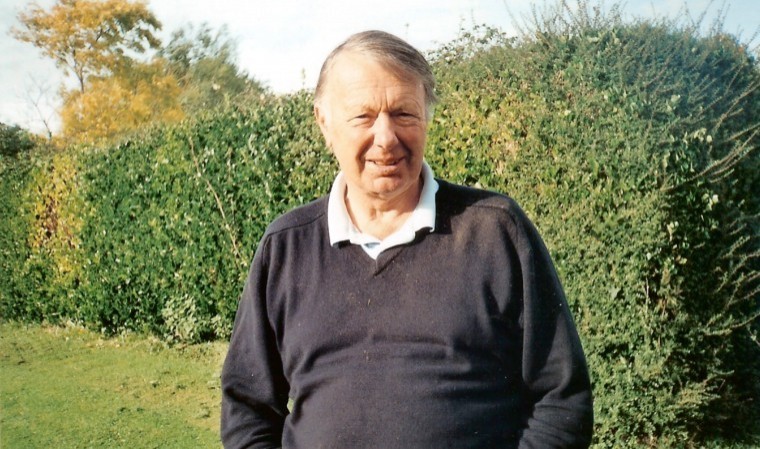Some 16 years ago I wrote a book* about farming, my family and life in the last century and, when it was finished, thought it should pretty well wrap up my life story. How wrong I was.
Inevitably, such has been the turmoil in farming, these past 16 years have been filled with drama enough to fill another book with farm development, expansion, frustration. Yet I suppose the most persistent distressing theme during these years has been the build up of cattle TB, which seems to make a further advance every time the date for presenting the editor with my month’s copy comes round.
Like now. In last month’s South East Farmer (to meet the editor’s deadline), I reported how our herd had tested clear following suspected TB lesions in an eight year old cull cow sent to an herd abattoir. The test brought us great relief. For three weeks. Until the original animal’s sample unfortunately returned a positive result, closing down all movements from our herd and, in all probability, local herds within a three kilometre radius of our holdings.
The only uncertainty is where the infection emanated from and, as this goes to print, we have challenged that decision, primarily since there is some doubt the sample in question was from our animal. This challenge entailed a DNA blood sample from the cow’s only progeny still in the milking herd, to be compared with samples from the suspect herself, retained by Animal Health. This is at our expense, although recoverable if we get a favourable result. It may well be a lost cause but we have been professionally advised to pursue it, since there is apparently a regular history of incorrect /mistaken testing at certain abattoirs.
So, if they made an error, this blood test could just save a lot of worry to a good many other stock keepers in the area, as well as ourselves. We feel the state vets may perhaps be reaching conclusions based on the wrong information. So it seemed worth taking advice and doing this final cross check before we are forced into two more “60 day extreme interpretation” tests on what is a closed herd of cows with no positive TB history in the past 13 years.
You may wonder why I continue to make this issue so public but I feel very strongly that too many farmers treat TB as leprosy was once treated, and try to pretend it isn’t there. We need far more openness between farmers. TB is a government/animal rights inspired disaster. Basically nothing the government or Deathra have done in the past 30 years has contributed one iota to getting on top of a disease our UK veterinary services had virtually eradicated by the early 1970s. I get the impression the vet staff were very embarrassed at the Labour government’s charade of applying “best science” excuses and doing nothing, for fear of upsetting the animal rights heavies. “Best science” my foot! “Best science” for increasing the bloody badger population. And, apart from Owen Paterson, the Tories are little better. So the prime minister sacked him, in case he upset the boat!
Although there are recent glimmers of better news of milk prices, hardly a month goes by without news of old established dairy units closing down and one wonders where it is going to end. Other than in a cattle free arable prairie, solar farms, or yet more wholesale residential and commercial developments. There’s not a lot of us left now.
All this is resulting from a very difficult double whammy. Milk prices to most farmers have dropped by 50% (not obvious from observing shop prices?) coupled with this steady creep of TB across previously clear parts of the country.
Yet some stay loyal to the animals. We have spent many hours discussing our own options for the future. Since my niece, Emma, joined us some seven years ago the average age of our management has been reduced by some 25 years which has changed our outlook a little! If “yours truly” was at the helm alone I think it might all seem a bit too much like beating your head against a wall. But my Emma fortunately sees dairying as her future and we have, I hope rightly, pinned our sails to the mast of dairy farming. We are now firmly set on our plans for the future.
Although I imagine in many cases the only option will be to dispose of the whole lot, land and all, then try to forget what farming life was like before: yes, it will be a difficult transition for many after a lifetime with cows. But just maybe, a tremendous relief as well? So this has been the background of our own decision and now the die is caste. We have a nice closed herd of British Friesians, plenty of good, almost year round grazing land, and the skills and enthusiasm to see this crisis through. Along with the huge advantage, unavailable to so many, of not being tenants.
So the country has spoken about our relationship with our European neighbours and one hopes things settle down a bit, that the dire threats of certain scaremongering politicians turn out to be just that and the country gets on with its life as an independent self governing state. There will be some faces leaving positions of power who will no longer be able to slide off to Brussels/Strassburg for the land of milk and honey of recent years and that will be good. Doubtless they will just be having to settle for peerages and knighthoods.
So actually good news. It is just this bloody TB I find so wearingly depressing.
*Still available from good bookshops, paperback only, “The Life and Times of a Twentieth Century Farmer’s Boy”




